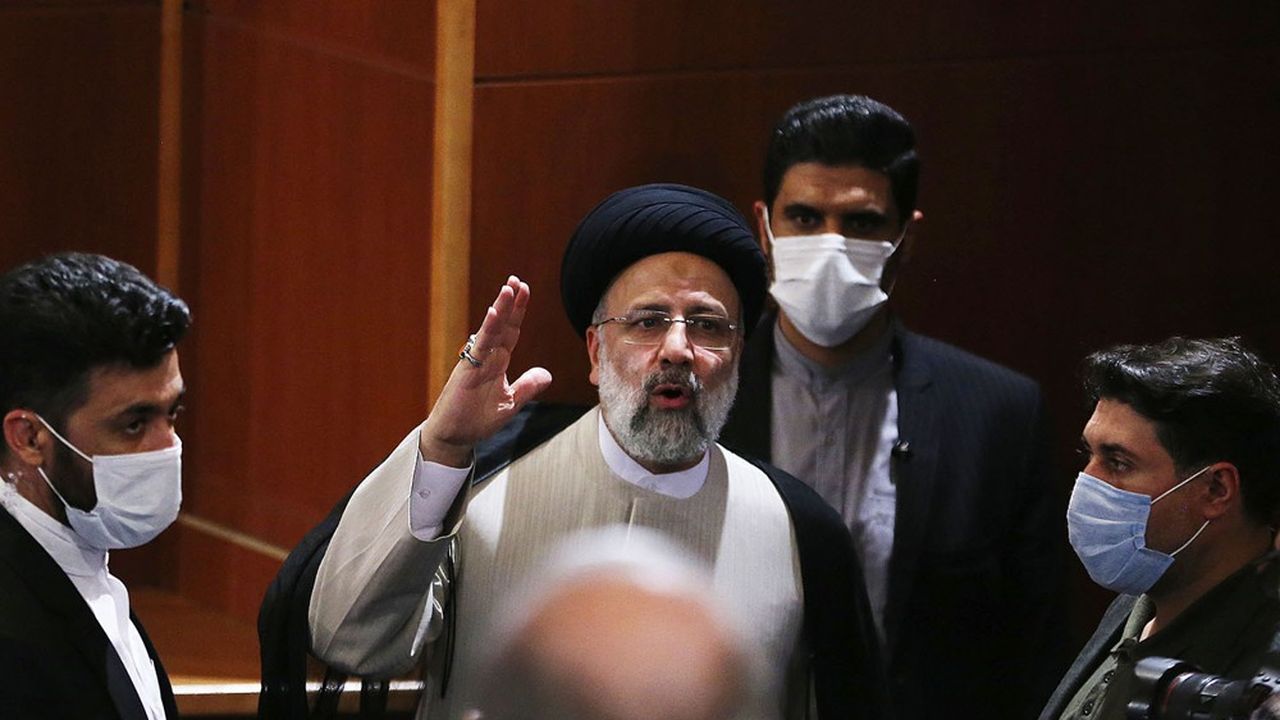Iran’s President-elect Ebrahim Raïssi set the tone on Monday for his future foreign policy. He stressed, as he had done during the campaign, in tune with the other three candidates, that he was in favor of negotiations with the United States to put back on track the so-called JCPoA agreement of 2015 by which his country agreed to verifiably reduce or suspend its nuclear program in exchange for international economic reintegration.
Agreement from which Donald Trump unilaterally withdrew his country in 2018, rendering it de facto null and void, to establish sanctions against Tehran. Since then, Iran’s oil exports, the source of almost all of its foreign exchange earnings, have been reduced by four. In response, the Iranian regime has abandoned many of the safeguards to its nuclear activities suspected of hiding the production of nuclear weapons.
Slow negotiations
Ebrahim Raïssi, elected in the first round three days ago with 62% of the vote but who will not take office until August, however specified that these negotiations had to be “fruitful” and that he would not “negotiate for the pleasure of negotiating ”. A logical warning, so as not to appear too ready to make concessions, while the discussions relaunched since the arrival of Joe Biden at the White House are advancing very slowly.
A new session, the sixth, of discussions in Vienna between the parties still involved in the JCPoA (Great Britain, China, Germany, France, Russia and Iran) with indirect participation from the United States, ended on Sunday without concrete progress. . The conclusion of a compromise before the assumption of office of Ebrahim Raïssi remains a possibility, according to European diplomats who warn however that the discussions “cannot go on forever”. The Iranian president will in any case only be able to negotiate by respecting the strict mandate conferred by the real master of the country, the Supreme Leader, Ayatollah Ali Khamenei.
At the same time, during his first press conference since his election, Ebrahim Raïssi affirmed that there were “no obstacles” to the resumption of diplomatic relations – broken off since 2016 – between the Sunni kingdom of Saudi Arabia, regional rival of the Islamic, Persian and Shiite Republic. Diplomats from both countries have met in recent months in neutral venues to discuss normalization, after Riyadh and Tehran came on the brink of armed conflict in 2018.
–

